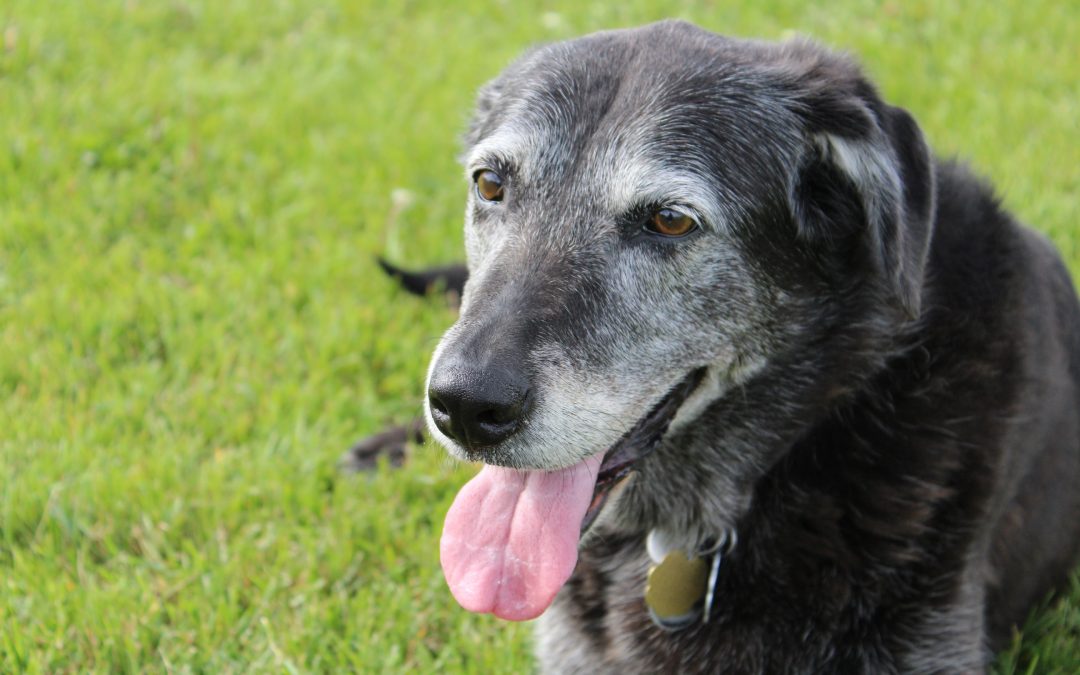As with humans, our pets often slow down both physically and mentally as they get older. Caring for an ageing companion animal requires different considerations when compared with the days when they were once young and active.
Vet visits for a senior pet
There are several different things you can do to help your companion animal continue to be as comfortable and healthy as possible as they age. Our pets age much more rapidly than we do, so one of the most important things is to schedule regular vet visits. Just like older people, senior pets can become prone to age-related diseases so this will provide an opportunity to identify health problems before they become too serious.
Healthy weight and exercise for an older animal
Maintaining good body weight and providing age-appropriate exercise for your pet is also important. Weight-related health problems in senior-aged animals will cause significant discomfort to your pet. Provide a good, balanced diet and not too many treats. Regular exercise is important and beneficial, be sure to talk with your vet about the activity level that is best for your dog.
Other supplements and treatments
There are a number of supplements, such as turmeric, green-lipped mussel extract, and fish oil that are known to have anti-inflammatory properties that may help your pet. Always consult with your vet before giving these to your pet to ensure this is the most effective treatment plan.
Keeping your older pet comfortable and content
You know your pet better than anyone, so if trying these potential solutions provides positive results, your pet will benefit. And if they don’t assist in the way you’d hoped, simply be extra cautious about keeping your dog comfortable and content. That may mean reducing the length of walks, and instead opting for short strolls and more naps.
Some common illnesses and ailments
Vision deficits
Vision deficits are common in older pets. Things to watch for include changes in the appearance of your pet’s eyes, such as dilated or constricted pupils, squinting, or cloudiness. Also, monitor your pet for vision problems and note if they have trouble navigating while walking. If you notice any of these things, it’s time for a visit to your vet.
Hearing loss
Hearing loss is another common problem in senior pets. Signs that a pet may not have optimal hearing are startling easily when approached from behind, being unreactive to sounds that they previously responded to, and going the wrong direction or turning the wrong way when called. If you are noticing these things, a visit to your vet is important.
Cognitive dysfunction
Cognitive dysfunction is a condition associated with brain aging. The first thing you may notice is disorientation and confusion – even in familiar environments. They may pace aimlessly or get stuck in corners or start toileting in the home. If your pet is displaying these behaviors, consult your vet. There are many options available to assist your pet with this.
Kidney disease
Kidney disease commonly affects older pets, particularly cats. Initially, you may not see any signs of illness in your pet but as the problem progresses, your pet maybe drinking more water than normal and urinating more. You may also notice weight loss, vomiting, lethargy, and mouth ulcers or odor. If your pet has these signs you should consult your vet.
Cancer
Older pets have a higher incidence of growths and tumors. Watch for lumps and bumps on your older animals and have them checked by your vet. If your pet starts losing weight or has a marked lack of energy or appetite, cancer screening tests, and an exam by your vet are recommended.
Arthritis
Arthritis is the main cause of chronic pain in elderly dogs and cats. An older pet may have intermittent pain or stiffness after rigorous activity. You may notice your pet having difficulty getting up and down, or limping. If you see these signs, talk to your vet about taking x-rays to check your pet’s joints for arthritis.
Download AWLQ’s Guide to Caring for Senior Pets here.
Word count: 663
For all media enquiries please contact Craig Montgomery at AWLQ on 07 5509 9030/0424 382 727 or email communications@awlqld.com.au







































Recent Comments